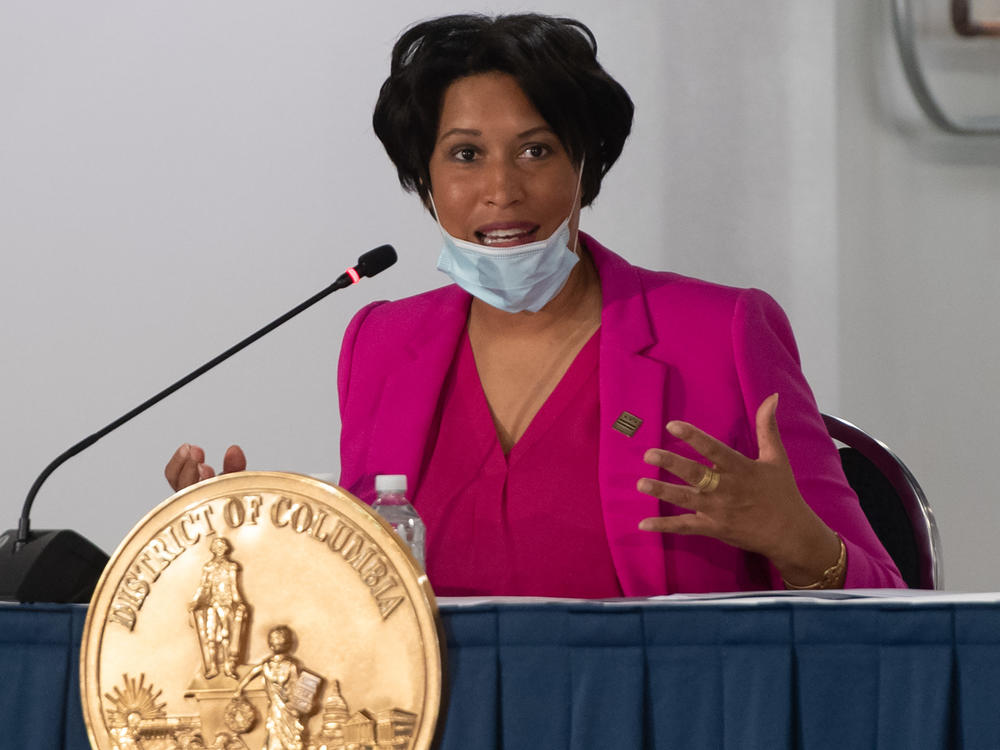Section Branding
Header Content
Investigation Uncovers Missteps In Washington, D.C.'s Coronavirus Response
Primary Content
In cities across the county, Black people have been more likely than their white neighbors to become ill and die from the coronavirus. Public health experts have blamed this gap on the historic disparities in overall health between Black and white Americans.
Perhaps no city exhibits this trend more starkly than Washington, D.C., where the coronavirus has killed Black residents at 5.9 times the rate of white people — a disparity that's worse than any other big city in America with published demographic data.
The unequal toll of the pandemic reflects the unequal conditions that divide Washington, D.C. Black residents of the nation's capital have a life expectancy that's 14.9 years shorter than white people, the largest gap of any of America's most populous counties.
Under budgetary constraints from Congress, the local government hasn't done much to address those racial inequities over the years. And it was even slower to respond when COVID-19 added another health risk for Black residents.
To date, Black people make up 74% of the District's 568 deaths, even though they make up only 46% of the city's population, according to an investigation by APM Reports.
The investigation found that Mayor Muriel Bowser's administration made crucial missteps in the early days of the pandemic.
- In the early weeks of the pandemic, the city didn't set up a site for free coronavirus testing anywhere east of the Anacostia River. Those neighborhoods are home to 161,500 people, more than one-fifth of the city's population, nearly all of them are Black. When they city did finally open one in early April, it was located at an out-of-the-way public hospital, close to the Maryland border. The testing site was open for only four hours a day on Mondays, Wednesdays and Fridays — a limited schedule that one epidemiologist called "shameful." Two months later, the city closed the site. The lack of early testing hid just how far and fast the coronavirus was spreading into that part of the city.
- On April 15, Bowser ordered the city's Medicaid administrator to contact all patients with underlying health conditions to provide them with information on how to avoid contracting the coronavirus. But the agency didn't solicit bids until more than a month later, on May 21, around the time that APM Reports asked about the program's status. In that lost month, 337 people died from COVID-19. A contractor wasn't selected until six days before the city began reopening.
- In early April, disability-rights advocates expressed "grave concerns" about how the city-run psychiatric hospital, St. Elizabeths, would deal with the coronavirus. They said the hospital had bungled past health scares, including the discovery of Legionella bacteria in its water the previous fall that led to a 27-day water outage. But St. Elizabeths administrators didn't get that onsite help with infection control measures, according to those advocates. Staff said they had to reuse protective equipment, and patients said clearly sick people kept walking around the units. Lawyers sued and a federal judge finally had to intervene, saying the hospital had made a "substantial departure from professional judgement." But it was too late for the 13 patients and one staffer who died.
City agencies said that they did the best they could under the circumstances.
"The onset of COVID-19 was swift and unpredictable," Alison Reeves, a spokesperson for DC Health, wrote in an email.
Yet other cities, such as Chicago, Detroit and Milwaukee, did far more, including coordinating with local organizations to ensure there was more testing and more outreach in Black neighborhoods.
After repeated requests for comment, Bowser's office asked APM Reports to submit a list of questions, which were subsequently not answered.
Parisa Norouzi, the director of Empower D.C., a group of low-income city residents who advocate for racial and economic justice, said, "Honestly, I think that this city was not prepared."
Read the full story from APM Reports.
This story was produced by APM Reports, the investigative reporting unit of American Public Media.
Copyright 2020 American Public Media. To see more, visit American Public Media.

